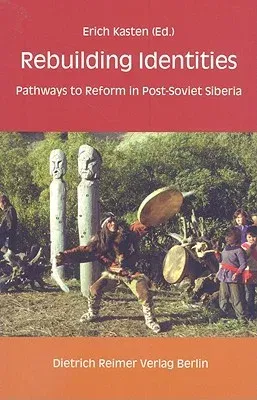Rebuilding Identities: Pathways to Reform in Post-Soviet SiberiaPaperback, 1 October 2009

Qty
1
Turbo
Ships in 2 - 3 days
In Stock
Free Delivery
Cash on Delivery
15 Days
Free Returns
Secure Checkout

Print Length
280 pages
Language
English
Publisher
Dietrich Reimer
Date Published
1 Oct 2009
ISBN-10
3496027789
ISBN-13
9783496027782
Description
Product Details
Book Format:
Paperback
Country of Origin:
DE
Date Published:
1 October 2009
Dimensions:
20.32 x
13.46 x
1.52 cm
ISBN-10:
3496027789
ISBN-13:
9783496027782
Language:
English
Pages:
280
Publisher:
Weight:
476.27 gm